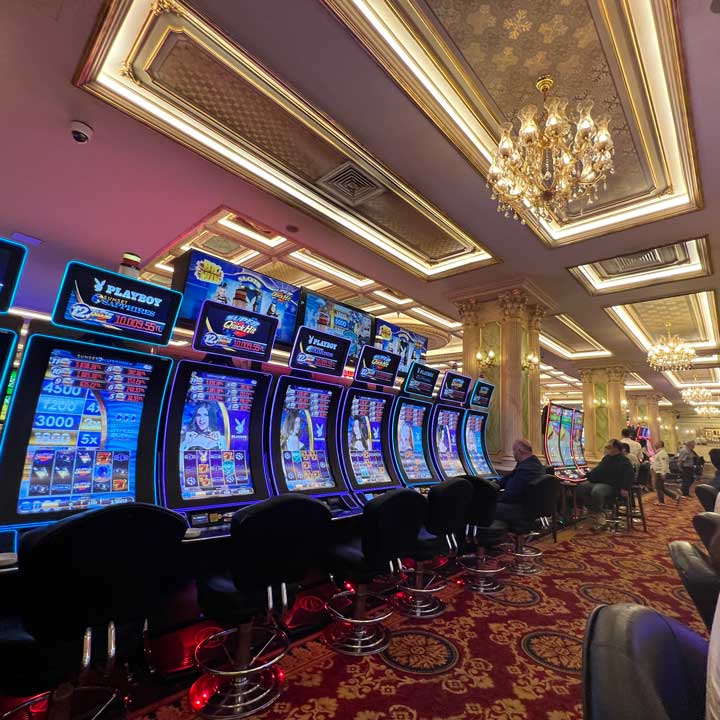
Casino games have long been a captivating source of amusement, drawing numerous of players from varied cultures around the globe. From the glitzy casinos of the Strip to the busy gambling halls of the Chinese gambling capital, these games serve as a common thread that connects people across various backgrounds. The allure of chance, tactics, and risk entices not only those hoping to win money but also those seeking a shared experience.
The significance of casino games extends well beyond the gaming floor. They often represent the social norms and beliefs of the cultures in which they thrive. Games such as poker, pontoon, and the wheel game have woven themselves into the tapestry of mainstream culture, influencing various aspects from movies to style. As we explore this fascinating intersection of luck and life, we can gain insights into how these games shape and are shaped by the environment surrounding us.
Chronological Progression of Gambling Activities
The beginnings of casino activities can be tracked back to ancient civilizations, where gambling in various forms was extensively practiced. FB88 FB88 In China, around 2300 B.C., a variant of luck game known as Keno was popular, while in ancient the Roman Empire, soldiers would frequently gamble on the consequences of their matches. The notion of using chance for fun and profit developed over the ages, leading to the creation of more structured games. By the end of the Middle Ages, gambling houses began to emerge in Europe, especially in Italy, which presented early incarnations of famous activities still practiced today.
As betting expanded recognition in the continent, the 17th and 18th centuries saw the appearance of casinos as dedicated locations for betting. The earliest official gaming venue, the Ridotto, was established in the Venetian city in the year 1638, offering activities like Baccarat games and Faro games. This era marked a major pivoting point, as gaming venues began to welcome not just the wealthy but also the expanding middle-tier society. The sophistication of activities grew, leading to the creation of new guidelines and versions that improved the gaming experience.
In the 19th century, the industrial revolution and transformations in social conventions additionally changed the terrain of casino games. The launch of the game of roulette and new one-armed bandits drew a more diverse crowd, and casinos became seen as acceptable fun. This time witnessed the international spread of gambling, as casinos expanded from Europe to the Western Hemisphere, culminating in the creation of the famous Las Vegas Strip in the 20th century. The evolution of gambling activities has progressed into the present day, incorporating modern technology and online sites, rendering them accessible to a universal population.
# Cultural Importance across Diverse Cultures
Casino games have profound cultural importance across a multitude of cultures across the world. Places like Las Vegas, the very fabric of the city is woven around gaming venues, where gambling is not just a recreational activity but a fundamental aspect of leisure and community life. The bright lights and vibrant atmosphere attract millions, showcasing how gambling activities can influence local financial landscapes and cultural uniqueness. This surrounding transforms the notion of recreation into an engaging experience that affects apparel, sound, and even movies.
Conversely, some communities treat wagering with an air of caution, viewing it through the lens of ethical considerations and tradition. For example, in various Asian communities, games like Mahjong and Pai Gow Gambling are steeped in history and have significant social relevance. These games are often played during gatherings and occasions, fostering community bonds and strengthening family ties. The act of participating in these games goes beyond mere leisure, reflecting principles such as deference to seniors and the significance of communal fun.
At the same time, in European countries such as Monte Carlo and the Italian Peninsula, games of chance serve as symbols of luxury and sophistication. The stylish atmosphere of these establishments attracts both travelers and residents, reinforcing a sense of distinction and exclusivity. The art of Texas Hold’em and the strategic elements of games like baccarat are esteemed, influencing social dynamics and establishing an allure that captivates a diverse audience. This emphasizes how games of chance can simultaneously echo and mold cultural perspectives towards hazard, reward, and community interaction.
Economic Impact and Travel Industry
Casino games play a significant role in the economic landscape of many areas, particularly those that depend significantly on visitor traffic. The revenue produced from casino operations fuels local financial systems, creating employment opportunities not only within the casinos themselves but also in connected industries such as hospitality, dining, and entertainment. This influx of tourists, drawn by the allure of games and the overall casino experience, stimulates expenditure across multiple local enterprises, contributing to the economic vitality of the region.
The existence of casinos often leads to the development of facilities, including hotels, transportation systems, and recreational facilities. These developments are essential in enhancing the overall visitor satisfaction, making locations more attractive to visitors. Additionally, many casinos invest in local communities through support of activities and philanthropic initiatives, further integrating themselves into the community structure of the region. Such contribution not only supports economic growth but also fosters a positive reputation of the gambling sector.
In addition, the worldwide appeal of casino games drives competitive tourism, with regions vying to attract players from around the world. Iconic locations like Las Vegas and Macau have become identifiable with casino culture, drawing millions annually. This advantage encourages innovation and diversification within the gaming industry, influencing trends in entertainment and hospitality that resonate beyond their limits. The ripple effects of this tourism extend wide, impacting local economies and cultural exchanges on a worldwide scale.
